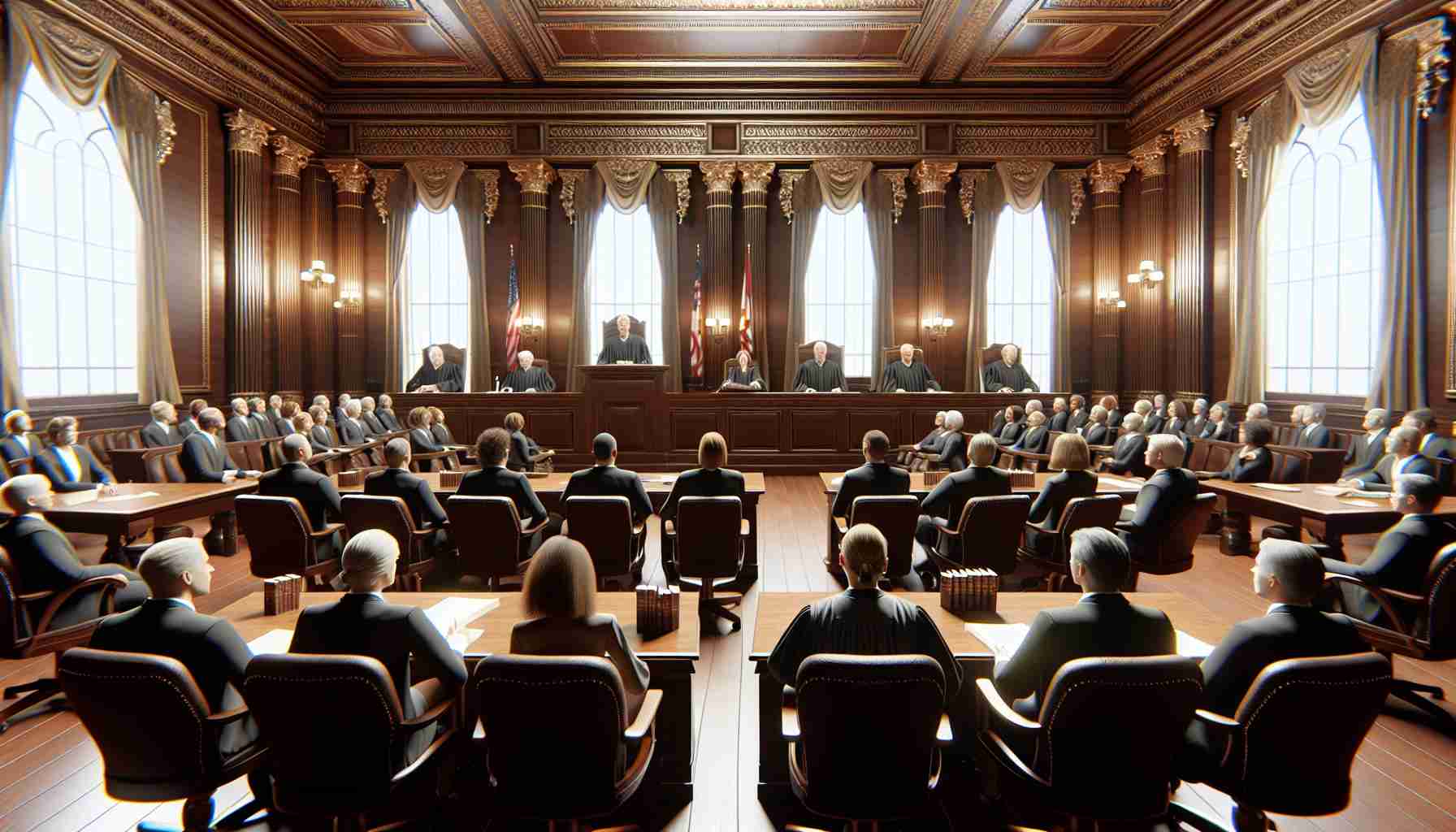
This image was generated using artificial intelligence. It does not depict a real situation and is not official material from any brand or person. If you feel that a photo is inappropriate and we should change it please contact us.
The Supreme Court Showdown: Trump’s Bid to Reshape Federal Power
- Former President Donald Trump is challenging restrictions on his power to dismiss key officials, with far-reaching implications for the federal government’s balance of power.
- The case centers on Trump’s attempt to remove Hampton Dellinger, head of the Office of Special Counsel, which protects whistleblowers from political retaliation.
- Historically established positions, dating back to the Carter administration, could be threatened, influencing agencies like the Federal Trade Commission and the Federal Reserve.
- The debate highlights the tension between a streamlined government and the risks of unchecked presidential authority.
- The Supreme Court’s decision will address the fundamental question of presidential power over federal agencies.
The icy corridors of Washington’s power struggle heat up as former President Donald Trump gears up for a pivotal battle in the Supreme Court. At stake is more than just a single dismissal. Trump’s challenge against the limitations on his power to fire key officials could redefine the balance within the federal government.
At the epicenter lies Hampton Dellinger, head of the Office of Special Counsel, an independent body tasked with safeguarding whistleblowers. Appointed by President Biden, Dellinger’s office stands as a bastion against political retaliation, ensuring the whispers of dissent aren’t stifled by the whims of the White House. His sudden removal, however, has sparked a legal firestorm. The founding principles safeguarding such positions—established during the Carter years—could now be on shaky ground.
This confrontation isn’t just about one case; it echoes into the realms of agencies like the Federal Trade Commission and the Federal Reserve. Imagine the intricate dance of power, as these bodies historically operated a step away from political influences—guardians of stability, even when under pressure from the White House. Remember those whispered demands by Trump during his first term for rate cuts, largely sidelined by the Federal Reserve? The echoes of such moments reverberate as the case unfolds.
Supporters of Trump chant for a streamlined government, unfettered by red tape, while critics warn of the dangers of unchecked presidential power—a dance as old as democracy itself.
As the Supreme Court gears up to decide, the question morphs from legal jargon into a profound inquiry: How much power should one man hold over the sprawling apparatus of government?
The Supreme Court Showdown: Could Trump’s Case Reshape Federal Governance?
Understanding the Case and Its Potential Impact
Former President Donald Trump’s Supreme Court challenge regarding the dismissal of key federal officials could have sweeping implications for the federal government’s structure. The heart of the issue revolves around whether the President should have the overriding authority to dismiss officials like Hampton Dellinger, head of the Office of Special Counsel. This challenge questions long-standing principles protecting such independent roles from political influence. This case could redefine the checks and balances designed to maintain a separation between politics and the operational integrity of federal agencies.
How-To Steps & Life Hacks
Keeping Informed About Judicial Decisions:
1. Follow Official Supreme Court Bulletins: Stay updated on the case proceedings by checking the official Supreme Court website.
2. Subscription to Legal Analysis Platforms: Consider subscribing to legal analysis services or podcasts for expert insights.
3. Engage in Civic Discussions: Join forums or community discussions online or locally to understand diverse perspectives on the issue.
Real-World Use Cases
– Federal Agencies’ Independence: Agencies like the Federal Trade Commission (FTC) and Federal Reserve operate autonomously to shield them from immediate political pressures, ensuring stability.
– Impact on Whistleblower Protections: A decision favoring the executive might weaken protections against political retaliation.
Market Forecasts & Industry Trends
– Short-Term Volatility: Changes in federal agency independence could temporarily affect sectors heavily regulated by said agencies, like finance and trade.
– Long-Term Structural Adjustments: A possible shift in power dynamics could lead to legislative overhauls to restore checks and balances, impacting governmental operations.
Reviews & Comparisons
– Comparison with Previous Presidencies: Historical examination of similar issues reveals varied approaches to executive power, from FDR’s New Deal-era consolidation to Reagan’s deregulatory emphasis.
Controversies & Limitations
– Pros of Enhanced Executive Power:
– Streamlined decision-making.
– Reduced bureaucratic inefficiencies.
– Cons:
– Potential erosion of the checks and balances fundamental to democracy.
– Increased risk of politicization of independent offices.
These potential outcomes must be weighed by policymakers and the public alike.
Features, Specs & Pricing
This isn’t about features or specs but rather about governance structures that guide federal agency operations and interactions with the executive branch.
Security & Sustainability
– Democratic Integrity: Ensures independent oversight prevents abuses of power and maintains public trust in institutions.
Insights & Predictions
Expert Opinion: Legal scholars predict this case could lead to re-evaluation and possible reformation of statutes governing agency independence, regardless of the outcome.
Pros & Cons Overview
– Pros:
– Increased executive efficiency and ability to implement policies promptly.
– Cons:
– Heightened risk of centralized power diminishing agency autonomy.
Actionable Recommendations
– Stay Informed: Actively track the developments of the case through reputable news outlets and legal commentary.
– Engage Politically: If concerned, participate in public policy discussions or advocacy efforts to shape the legislative response, should a significant ruling alter current structures.
In conclusion, as political and legal observers turn their eyes to the Supreme Court, the implications of this pivotal case could ripple through the tenets that define governance, democracy, and power distribution in the United States.